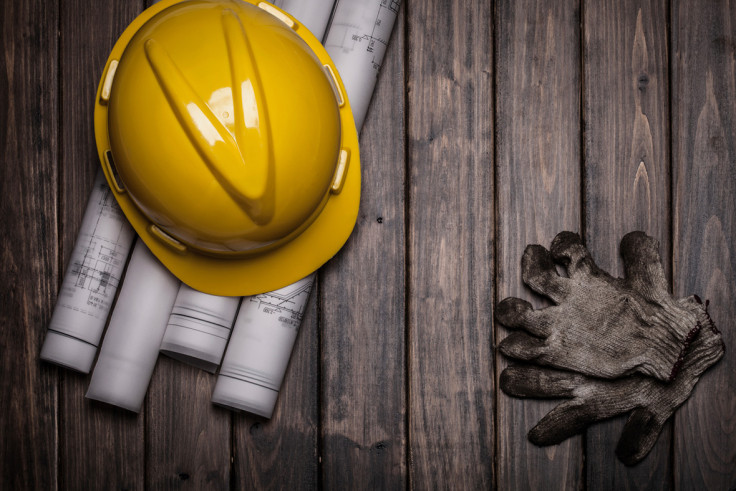No industry for old men: Why 'Big Oil' needs to woo younger, female workforce
Energy industry's lack of appeal for women and the young remains a major cause for concern.

It may not be as pressing an issue for the World Petroleum Congress (WPC) as the crude oil price slump, but had you asked around the oil and gas industry's recently concluded triennial jamboree held in Istanbul, Turkey, plenty of high profile people would point to a lack of female executives as a major concern.
Furthermore, equally concerning is the perceived loss of the industry's appeal for young professionals choosing a career pathway. To his credit, Dr Jozsef Toth, President of World Petroleum Council, which has been organising the congress since 1933, acknowledged the problem in his very first quip of the event.
"Oil and gas will play a role in the energy mix for decades to come. Yet, at the same time the number of people joining the energy industry is declining."
Much more needs to be done when it comes addressing the gender balance in the business, he added. "We are committed to changing this, as well as showcasing the talent of female industry executives to inspire."
That's all well and good; but a cursory look around the WPC plenary halls, auditoriums and corridors by your correspondent found an overwhelming number of delegates of the male and middle-aged variety, regardless of which country they were travelling from.
Of course, there was a young professionals' floor and youth congress, and events such as a youth night and a 'Women in Energy' breakfast.
Despite being well-intentioned objectives aimed at promoting dialogue, to many participants interviewed by IBTimes UK they seemed to be perfunctory box-ticking exercises being conducted because a mega industry event of the WPC's size could not possibly not have them. The previous Congress in Doha (2011) and Moscow (2014) had the very same events.
Hope is that the hard work in attracting young recruits and tackling the gender imbalance will finally begin in earnest once WPC's 6,000-odd delegates, 500 CEOs, 50 Ministers and heads of state go home and ponder about it.
For that to happen, it is worth getting a deeper understanding of the problem first, according to Deborah Byers, US Oil & Gas Practice leader at global consultancy EY. A recent polling exercise in the US by Byers' colleagues found that most of the younger generation perceive oil and gas jobs as a bit too blue collar and dangerous.
"That's generation Z – or post-Millennials – typically born in the mid-1990s to early 2000s to you and me. We also find a disconnect between what oil and gas executives think young people want from a career and what they actually want. There's a general lack of awareness about the industry and the careers that power it, and a substantial gender gap."
There's a general lack of awareness about the industry and the careers that power it, and a substantial gender gap
When EY asked which three considerations are the most important in selecting a future career, both Millennials and Generation Z, as a whole, prioritised salary (56%), good work-life balance (49%), job stability (37%) and on-the-job happiness (37%)."
However, oil and gas executives polled expected the leading career drivers for young people to be salary (72%), technology (43%), good work-life balance (38%), and the opportunity to try new roles (28%). The study also found that only 24% of women in the 16-35 age group find oil and gas jobs appealing, while 54% of men in the same age range find them appealing.
The findings were based on a survey of 1,204 US consumers and 109 industry executives conducted earlier this year. In the wider scheme of things, the consultancy's findings offer only a glimpse into the thinking of female and young people hunting career prospects. However, what it also does is flag up the enormity of the task ahead.
"In an era of lower for longer, some say lower forever oil prices, the industry has a call to action to solve this perception problem for the sake of their future workforce and their success," Byers concludes.

Paradoxically, Eithne Treanor, a seasoned energy sector broadcaster and conference moderator based in Dubai, feels it's the low price environment that is putting people off.
"Oil and gas companies aren't in hiring mode in any case to begin with, as opportunities from geology to engineering, management to on-site operations dwindle. Furthermore, young people and suitable female candidates ask themselves should I really choose a future in an industry that's in decline or at least appears to be."
While the oil price environment is a relatively recent development, Treanor said the industry's problem of attracting fewer qualified female professionals and its lack of appeal to youngsters also has to do with historical reputational problems.
"Young people and female aspirants ask themselves should I really choose a future in an industry that's in decline or at least appears to be"
"The industry has been quite poor at engaging with young people, something I feel it is attempting to rectify. When the idea is to catch them young, leaving it till they are at university is a bit too late; I'd say go all the way lower to junior school.
"For example - a programme started by a science professor in Lebanon called 'The Young Engineer' has been running for 10 years and piques the interest of kids when they are 5-6 years old."
Specifically on the subject of attracting female talent, Trainer said: "Look around the WPC, majority of the panel discussions and deliberations have mostly male speakers. The lack of diversity is visible. Some women have risen through the industry ranks and have become role models, and are indeed here, but there are not that many."
Positive discrimination is needed, she added, including perhaps an introduction of the Norwegian model of mandatory quotas for women to be on corporate boards and in positions of authority.

Time is running out, and the industry needs to act fast, according Aleek Datta, Managing Director at consultancy Accenture.
"In 2011, around $590bn (£455bn) was spent on petrotechnical workforce development, which rose to a commendable $760bn in 2014. However, the oil price slump hit and spending on talent fell to $570bn in 2015, and has been in decline ever since.
"If we assume oil demand will increase, yet spending on talent continues at its current level, the global industry will have a 30% deficit of petrotechnical professionals as early as 2020.
"The oil and gas sector is losing the fight for top millennial talent, as young professionals prefer other industries, like the technology industry. Only 2% of US graduates, according our research, consider oil and gas as a primary career choice."
To some it might seem counterintuitive to invest in attracting and training young professionals and wooing more women to the industry when the oil price is down, but the risk of not doing so could be even more dire.
© Copyright IBTimes 2025. All rights reserved.





















